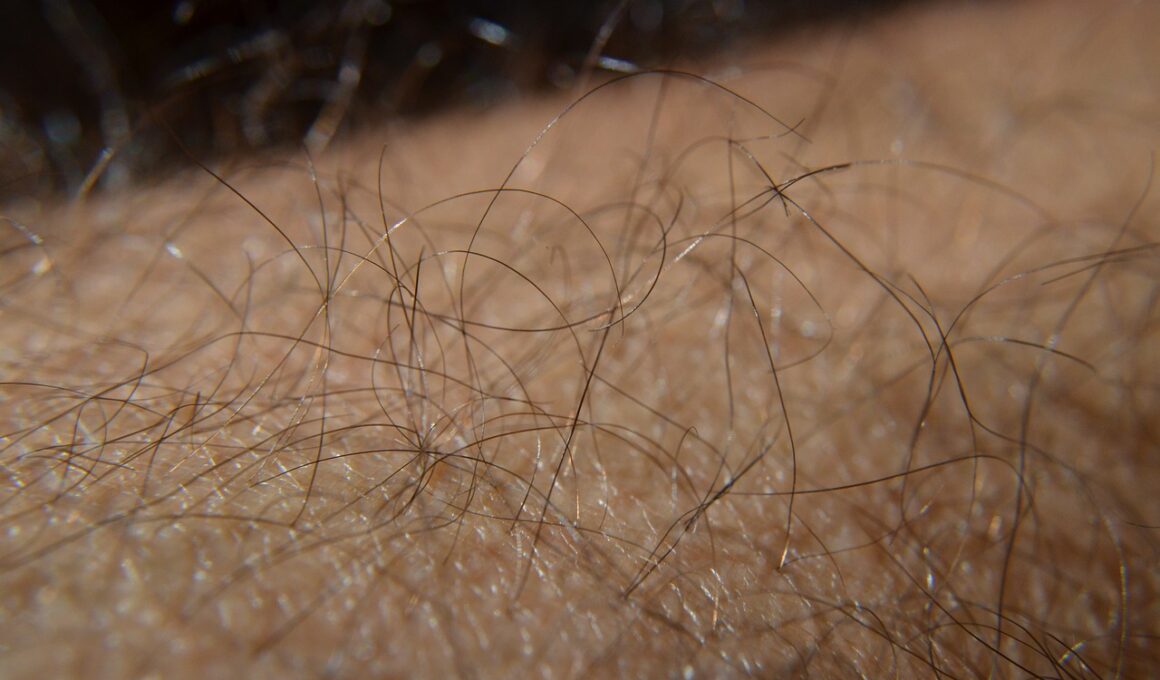How to Choose the Best Hair Growth Supplements for Your Dog
Choosing the right hair growth supplements for your dog can significantly impact their coat health and appearance. Begin your selection process by considering the ingredients in the supplements. Look for those that feature essential vitamins and minerals, such as biotin, vitamin E, and omega fatty acids. Each of these elements plays a vital role in promoting healthy hair growth. Ensure that the supplements are specifically formulated for dogs since human supplements can be harmful. It’s crucial to consult your veterinarian before starting any new supplement regimen. They can help identify any underlying health issues that may be affecting your dog’s coat. Additionally, pay attention to the form of the supplements – whether they are in chewable, liquid, or powder form. Some dogs may prefer one form over others, which can affect consistency in administering the supplements. Look for high-quality brands with positive reviews from other pet owners. Reading testimonials can provide insights into the effectiveness of the hair growth supplements. Explore multiple options and compare the price points, ensuring that you’re investing in high-quality products for your furry friend.
Once you’ve gathered a list of potential hair growth supplements, it’s time to delve deeper into specific attributes that matter. Investigate the sourcing and manufacturing processes of the supplements. A reputable supplier will provide transparency regarding ingredient sourcing, product testing, and manufacturing practices. Certifications and seals of approval indicate adherence to strict safety and quality standards. Consider searching for supplements with noticeable effects. Clinical studies supporting a product’s claims can give you confidence in its effectiveness. Additionally, some products include extra ingredients that can enhance coat quality, such as probiotics and antioxidants. These ingredients support overall canine health, influencing the quality of hair growth and reducing shedding. Read the labels carefully and ensure that there are no fillers or artificial additives. Dogs may experience adverse reactions to certain substances. Therefore, sticking to natural, high-quality ingredients is always the best approach. Additionally, consult with other dog owners and communities. Learning from their experiences can provide valuable insights. Utilize online forums, social media groups, and local breed clubs to gather recommendations for effective hair growth supplements tailored for canine needs.
Assessing Your Dog’s Unique Needs
Understanding your dog’s unique health needs is essential for selecting appropriate hair growth supplements. Every dog is different, meaning their nutritional needs can vary based on age, breed, size, and activity level. Older dogs may require specialized supplements that target age-related hair loss and overall coat vitality. Conversely, puppies might need formulations rich in essential nutrients to promote healthy growth. Assessing your dog’s diet is also crucial. If they already consume a high-quality, balanced diet, they may require fewer supplements. However, if their meals lack essential nutrients, supplements can help fill those gaps. Always closely monitor your dog for any signs of allergies or sensitivities when introducing new supplements. Hair loss can sometimes indicate health problems unrelated to nutrition, so consulting a veterinarian should be a priority if you notice significant changes. Additionally, consider your dog’s lifestyle. Active dogs may require different nutrients compared to sedentary ones. Choose supplements tailored to their lifestyle to support optimal hair growth while maintaining overall health and fitness. Remember, holistic care often yields the best results for your furry companion’s coat health.
Another crucial consideration is the cost of hair growth supplements. While investing in premium supplements may feel overwhelming, remember that quality often correlates with results. Cheaper alternatives may contain ineffective ingredients. They might fail to address the specific needs of your dog, leading to wasted money and time. Compare prices across a variety of brands but also factor in the ingredient quality and the manufacturer’s reputation. Some brands offer subscriptions or bulk purchasing discounts, which could lead to savings over time. Be wary of extraordinary promises at a low price point, as they often signal inferior products. Furthermore, ask your veterinarian for recommendations that align with your budget and your dog’s specific needs. Look for reviews that speak to long-term benefits, as quick fixes are often shortsighted. Customer testimonials can guide you in identifying brands that have consistently delivered positive results. Network with fellow dog owners to gather their insights and experiences. By learning and sharing ideas, you may find new options that meet budget constraints while being effective at promoting hair growth. Making informed decisions can yield wonderful results for your dog’s coat health.
Monitoring Your Dog’s Progress
Once your dog starts taking hair growth supplements, it’s important to monitor their progress closely. Keep a detailed record of changes you observe in their coat over time. Healthy hair growth takes patience, so allow a sufficient amount of time to gauge effectiveness. Look out for changes in texture, shine, and even overall health. For instance, a shiny, soft coat often indicates improved nutrition and well-being. If you notice no improvement after a reasonable period, consider reevaluating the supplements or consult your veterinarian for alternatives. Visual documentation, such as before-and-after photos, can be an excellent way of tracking visible progress. Additionally, pay attention to any side effects or changes in behavior after starting the supplements. These can include digestive issues or lethargy, which may warrant discontinuation of the product. Some dogs may react negatively to certain ingredients, even in high-quality supplements. If adverse symptoms occur, reduce dosage or switch to a different formulation. Regular veterinary check-ups can also help monitor your dog’s overall health during this process, ensuring their transition to hair growth supplements aligns with their needs and lifestyle.
Enhancing your dog’s hair growth often involves other lifestyle adjustments that complement the effects of supplements. Regular grooming is one critical aspect. Brushing your dog not only removes loose fur but also stimulates blood flow to the skin, promoting hair growth. Consider incorporating a grooming routine that includes brushing at least a few times per week, if not daily. This practice removes dead hair and promotes well-nourished, healthy fur. Additionally, maintaining a clean environment helps prevent external factors like dirt or parasites from affecting coat health. Bathing your dog with suitable shampoos can also assist in maintaining healthy skin and fur. Look for grooming products containing natural ingredients, as they can further enhance coat quality. Eating a balanced diet with adequate protein and hydration is equally important. Ensure your dog has access to fresh water to maintain skin elasticity and moisture. Combining quality hair growth supplements with effective grooming and proper care can significantly impact your dog’s overall appearance. Holistic approaches yield the best results in any pet care regimen, shaping your beloved dog’s life positively.
Consulting Your Veterinarian
Before embarking on any new supplement regimen for your dog, consulting your veterinarian is paramount. They can help tailor your approach based on your pet’s unique health profile, existing diets, and potential medical issues. Your vet can recommend specific hair growth supplements based on their experience and knowledge of canine nutrition. This personalized guidance can prevent potential adverse effects caused by improper supplements. Moreover, your veterinarian can conduct necessary tests to pinpoint underlying issues that may be leading to hair loss. These tests may include skin evaluations, blood work, or allergy assessments. After identifying the root causes, appropriate supplementation can follow to address the problem. Regular check-ins allow for modifications in their nutrition plan as needed to suit your dog’s evolving health. Don’t hesitate to ask questions regarding any new product. Understanding how particular ingredients can benefit your dog not only aids in making informed choices but ensures you invest wisely in their well-being. Overall, your veterinarian’s consultation creates a safer path toward achieving optimal coat and skin health through tailored hair growth supplements for your dog.
Your dog’s overall health can greatly influence the condition of their coat, which is why understanding underlying health issues or deficiencies is imperative. Regular veterinary visits ensure your dog receives routine vaccinations, screenings, and wellness examinations that can help discover issues preemptively. Any pre-existing health conditions, such as allergies or skin disorders, need to be addressed. They could cause or exacerbate hair loss, thus affecting the overall effectiveness of hair growth supplements you may choose. Additionally, lifestyle factors like stress levels and dietary habits contribute to coat health. Stress can negatively affect a dog’s overall health, leading to compromised hair growth. By providing a stable, loving environment and proper nutrition, you create an optimal setting for your dog’s growth and well-being. Ensuring they do not undergo drastic lifestyle changes can also prevent additional stress that may lead to fur loss. Proper exercise also aids in overall health. Engaging your dog in regular physical activity can boost energy levels and promote good blood circulation, which positively affects their coat quality. Remember that a comprehensive health approach yields the most favorable results for your furry friend, creating a healthy shine.


